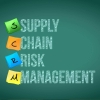Supply Chain Risk Management
| Previous | 10 / 11 | Next |
Workshop Objectives:
- The supply chain is by its very nature a complex activity which is susceptible to risks and its associated impacts. This became evident when the supply chain can to grinding halt due to the COVID 19 pandemic resulting in shortages of goods in all industries. Supply chain risk management should therefore be a central theme of an organisation’s strategy. It is a process whereby the organisation will identify, record and then address the risks associated with their activities with the aim of driving out or controlling those risks.
- The two day workshop will incorporate use of various risk identification and assessment tools to establish the level of risks in the supply chain and to recommend ways of avoiding, mitigating or managing risk. Participants will also learn the process of preparing and implementing business continuity planning in the event the organisation is exposed to these risks.
A) Understand the nature of risks in supply chains
- Types of risks that can impact on supply chains – Internal risks & External Risks
-
Categories of risks
- Strategic, Financial & Operational risks
- Risks due to contract failure, quality failure, security of supply, technology, logistics complexity & outsourcing
- Risks from wider environment: STEEPLED Policies.
-
Assessing risks in supply chains
- Use of Risks Assessment Tools for Identifying External & Internal Risks
- Mapping supply chain & value chain
- Use of probability and impact assessment to manage risks
- Practical application risk management tools for operational, financial and cyber security risks
- Use of templates for risk assessment
- Subjecting sourcing strategies to independent review
- Contractual remedies for managing risks Mapping supply chains
- Use of contingency plans to overcome supply chain risks
- Implications of contingency plan
- Components of business continuity plan (BCP)
- Implementing BCP


